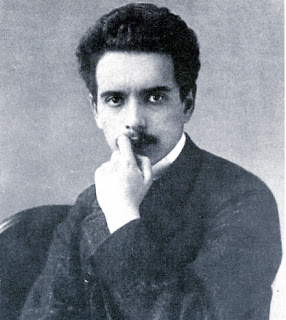The Road Not TakenTwo roads diverged in a yellow wood,
And sorry I could not travel both
And be one traveller, long I stood
And looked down one as far as l could
To where it bent in the undergrowth;
Then took the other, as just as fair,
And having perhaps the better claim,
because it was grassy and wanted wear;
Though as for that the passing there
Had worn them really about the same,
And both that morning equally lay
In leaves no step had trodden black.
Oh, I kept the first for another day!
Yet knowing how way leads on to way,
I doubted if I should ever come back.
I shall be telling this with a sigh
Somewhere ages and ages hence:
Two roads diverged in a wood, and I -
I took the one less travelled by,
And that has made all the difference.
– Robert Frost
Der andere WegEin Weg trennte sich im herbstlichen Wald
In zwei, doch ich war leider allein.
Als zaudernder Wand'rer sah ich kalt
Dem einen nach bis dort, wo er bald
Sich krümmte ins Gehölz hinein;
Dann sah ich den And'ren, genauso fein,
Und hatte vielleicht das bessere Ziel,
Da sein Gras wollte begangen sein;
Obgleich, und das galt für mich allein,
Entweiht hätt' ich beide ebensoviel.
Beide an jenem Morgen gleich lagen
Ohne Spuren, von Blättern belegt.
Oh, ich schenkte den Ersten späteren Tagen!
Weg führt zu Weg, so wollt' ich's wagen,
Auch wenn's mich hierher nie wieder verschlägt.
Ich werde ergriffen Dir davon singen
In fernen Jahrzehnten als mein Lied:
Am Scheideweg nach kurzem Ringen,
Nahm ich den Stilleren unter die Schwingen,
Und das war der große Unterschied.
– Übersetzung von Peter Morisse (2001)


